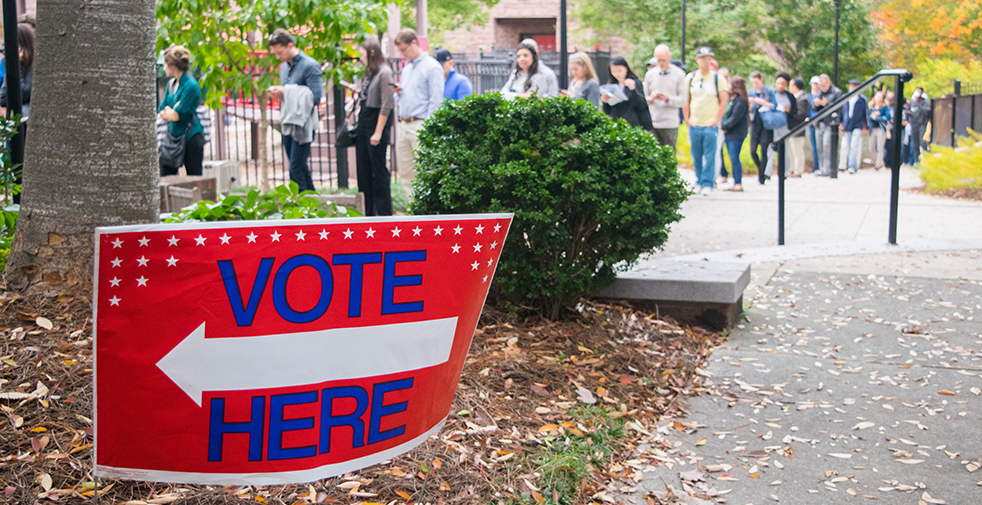Posted on 24 September 2018.
It is impossible to discuss the 2017-2018 academic year at Georgia Tech without mentioning the death of Scout Schultz at the hands of GTPD. The tragedy sent our community into a frenzy. Numerous campus organizations had suddenly lost an influential member and friend; students were drawn into debates about GTPD’s culpability and, above all, everyone involved faced a difficult question: How do we ensure that this never happens again?
A year ago, the Progressive Student Alliance, now a part of the Young Democratic Socialists of America (YDSA), quickly released a list of demands for Tech’s administration, aimed at changing campus culture with regards to campus safety, mental health and the LGBTQIA+ community. President Peterson and the higher-ups on campus eventually promised action, laying out the steps they would take to address the concerns of the student body. Now, one year after the shooting, little has been accomplished.
In a recent statement, YDSA noted a sizable disconnect between Peterson’s response and the steps he and the administration have taken in the past year. Of particular note were four proposed “action teams” tasked with determining issues in such areas as campus safety, mental health and LGBTQIA+ accommodations. The campus safety action team, according to Peterson’s “A Path Forward – Together” campaign, was set to be created after a Georgia Bureau of Investigation inquiry into the shooting. Months after the investigation’s conclusion, the team still has not convened and no new references have appeared. Furthermore, the recommendations of the action teams that still exist have been either skewed or omitted altogether.
According to YDSA, despite recommendations from the action teams as well as a promise from administration, there are no plans to include a multi-stall gender-inclusive restroom in the new student center. There are currently no plans to include these in any future buildings or renovation, begging the question of whether the action teams serve any real purpose at all. Furthermore, in his speech at the opening of the LGBTQIA+ center in 2014, President Peterson promised that all new building would include gender-neutral restrooms.
From the outside, however, it appears that progress is being made. The new LGBTQIA+ resource center just opened its doors, and virtually every campus initiative includes a reference to mental health. These observations crumble under closer scrutiny. While it is true that they have a new space, it would appear that the administration had little hand in the decision; the center was funded by SAA’s Gift to Tech, an allocation voted on by the student body. And, per the YDSA statement, Tech has yet to hire a single additional practicing counselor for its mental health initiatives.
The YDSA statement cites a lack of transparency as the main issue hindering progress. The group suggested allowing Tech’s student government to vote on and dictate policies regarding Peterson’s “Path Forward” campaign, though this may not have the desired effect.
First, this assumes that SGA is representative of Tech’s entire student body. Low voting numbers and trouble filling SGA positions — including president and vice president, as only a single ticket ran last year — should be evidence enough that SGA does not accurately represent the student body. Ignoring this, crafting institute policy involves juggling multiple different factors, several of which SGA could have no feasible hand in.
As a result, it appears that continued pressure on Peterson will be the most effective route moving forward. The administration has already made clear their willingness to drag their feet in terms of making change. If more students were to get involved, however, the wheels of change may start to spin faster.
It is safe to say that most Tech students have a very narrow frame of reference for these issues. Justified or not, their experience with YDSA’s efforts is sullied by flaming police cars and chants of “F*ck the Police.” With no way to sympathize — or even identify — with the implications that Scout’s death has had on a subset of the Tech community, they are susceptible to view YDSA and its associated groups as nothing more than that.
What they do not see, however, are events like the vigil held on a recent Tuesday night. Police lights painted the scene in hues of blue while officers in riot gear lined the sides of streets and tops of buildings. From the outside it appeared that something was wrong; from the inside the participants might have felt like they were a step away from arrest. In reality, what took place was a gathering of students honoring their friend and drawing attention to the Institute’s lack of action.
GTPD is understandably wary of demonstrations after last year’s vigil ended with a torched patrol car. To lose that stigma, YDSA needs people to understand the true meaning behind their anger and continue to carry themselves in a way that is beyond reproach. Any indication of violence or attack on GTPD, verbal or otherwise, is a step backwards in the goal of unifying campus behind YDSA’s cause. Without widespread student support, YDSA will have little means of spurring Peterson and the administration into action.
Fortunately for them, Peterson’s handling of the incident gives the group a lot to work with. Their recent statement outlines several broken promises and highlights a damning lack of urgency in fixing the community’s pressing issues. The lack of transparency is something that concerns the student body as a whole, so reaching out to prominent student leaders would be a productive move. While SGA should not be allowed to craft policy, getting their support would go a long way in catching Peterson’s attention.
Another important step will be ensuring that students know that last year’s violence was not condoned by YDSA. While the situation is certainly complicated, any anti-GTPD sentiment will only hinder YDSA’s progress. Our police department is one of the most beloved campus entities; vilifying the entire department does nothing but drive a wedge between YDSA and the indifferent students that they need on their side in order to make change.
Tech certainly needs to take a step forward, but it seems that the administration will not be the ones facilitate that. Only by uniting the student body behind their cause can the students affected by last year’s tragedy precipitate the change that they have been fighting tooth and nail to achieve.









